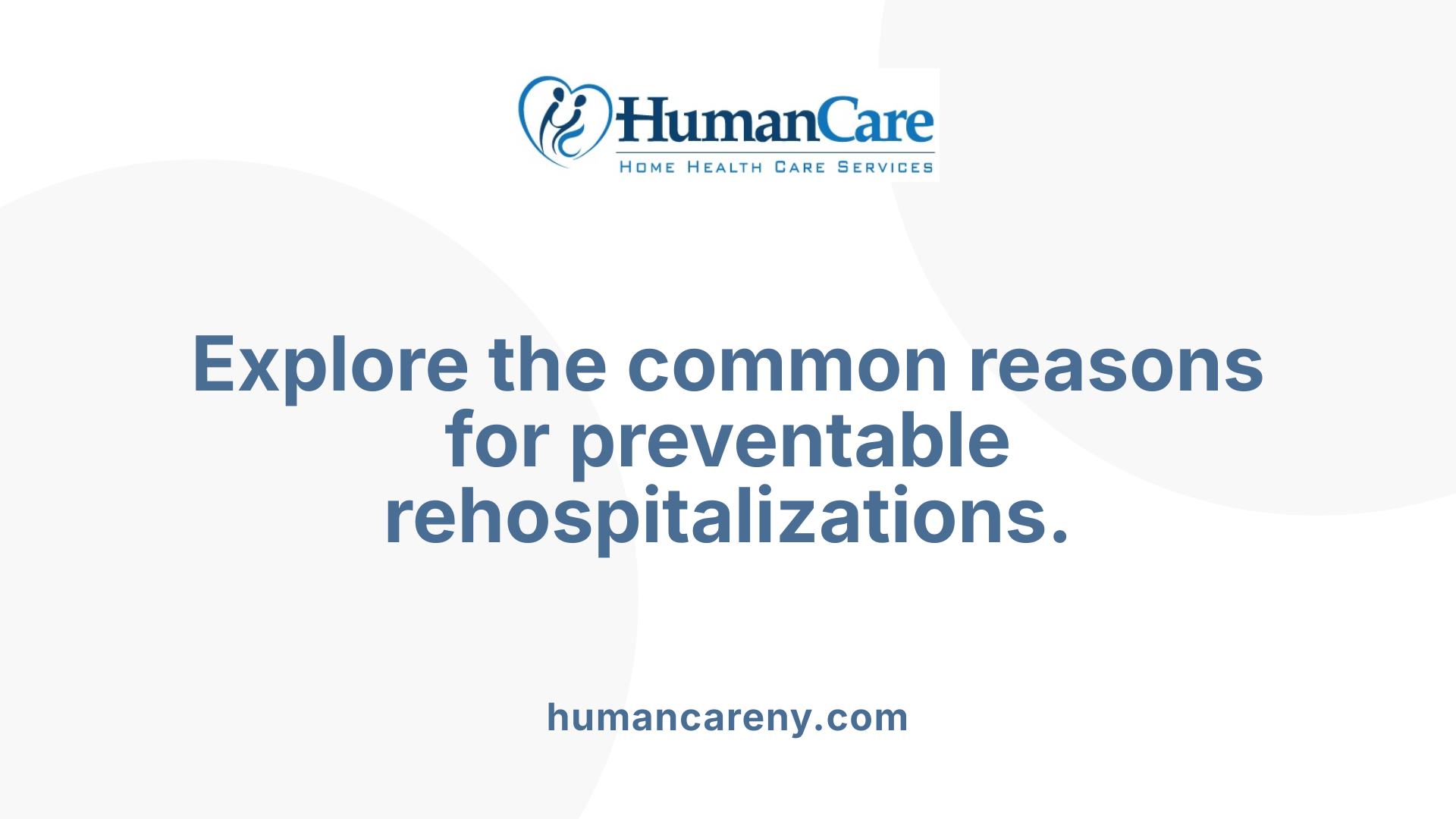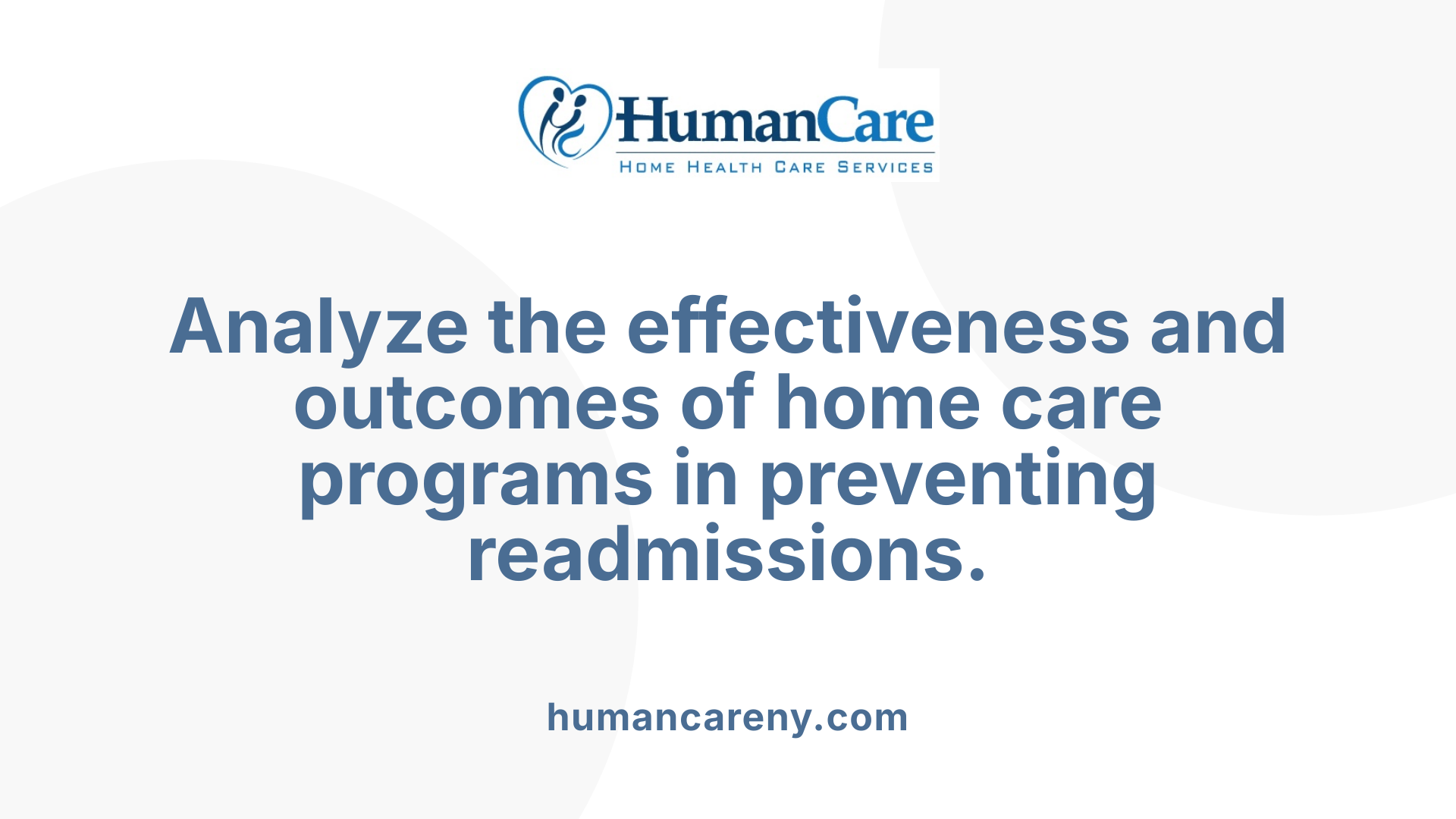How Home Care Prevents Rehospitalization
Exploring the Role of Home Health Care in Reducing Hospital Readmissions

Introduction
Hospital readmissions not only affect patient outcomes but also account for significant costs within the healthcare system. With increasing pressure on hospitals to further reduce avoidable readmissions, home health care emerges as a promising solution. This article examines the mechanisms through which home care can help in preventing hospital readmissions, shedding light on strategies and programs that enhance patient safety and recovery post-discharge.
The Role of Home Health Care in Preventing Readmissions

How can home health care help prevent hospital readmissions?
Home health care (HHC) plays an essential role in reducing hospital readmissions through a multidimensional approach. Studies indicate that patients who receive home health care have a 60% lower risk of being readmitted within 30 days compared to those without home health support. This reduction in readmissions is attributed to effective interventions that include:
- Patient needs assessments to tailor care plans specifically for individual circumstances.
- Medication reconciliation to prevent errors and ensure adherence to ongoing treatment.
- Patient education, which empowers individuals to understand their conditions and recognize warning signs indicating health deterioration.
- Arranging timely outpatient appointments for necessary follow-up care post-discharge.
- Providing telephone follow-up to maintain open lines of communication and promptly address any concerns.
Benefits and mechanisms of home care interventions
The benefits of home care interventions extend beyond simply reducing readmissions. For instance, patients receiving home health care experience an average savings of $239 less per hospitalization due to reduced readmission rates. Comprehensive approaches tailored for conditions like heart failure, COPD, and wound care maximize patient outcomes and minimize complications that may lead to rehospitalization. Notably, patient education and support help individuals manage chronic diseases effectively, enhancing their quality of life while reducing the risk of deterioration that necessitates a hospital visit.
Patient education and follow-up plans
A crucial facet of home health care is the emphasis on patient education and the implementation of well-structured follow-up plans. Caregivers educate patients on:
- Recognizing key symptoms and warning signs that require immediate attention.
- Adhering to medication schedules to avoid mismanagement, a common cause of readmissions.
With continuous monitoring and planned interventions, home health care can effectively decrease hospital admissions by reaching medically at-risk patients soon after discharge, fostering a supportive environment for recovery at home.
Understanding the Causes of Preventable Readmissions

What are common reasons for preventable rehospitalizations?
The most prevalent factors leading to avoidable hospital readmissions encompass a variety of issues. Emergency department decision-making plays a significant role, as choices made during initial assessments can lead to complications if not handled properly.
Following discharge, many patients struggle to keep their follow-up appointments, which can hinder their recovery process and lead to deterioration. Premature hospital discharges also pose risks, as patients may not be fully ready for the transition back home.
Additionally, some patients, especially those with chronic conditions, require ongoing interventions that aren't adequately managed post-discharge, leading to avoidable relapses.
Role of emergency department decisions and discharge timing
Effective emergency department evaluations can significantly mitigate the risks associated with premature discharge. When decisions made in the emergency room do not consider the patient's long-term health management, it may result in inadequate post-discharge care and subsequent readmissions.
Challenges in post-discharge care continuity
Achieving continuity of care post-discharge remains a substantial challenge. Many patients find it difficult to navigate the healthcare system, often leading to gaps in care. Moreover, social factors such as housing stability and support systems play a crucial role in recovery and need to be addressed effectively to minimize readmission risks.
Effectiveness of Home Care Programs

Does home care reduce hospital readmissions?
The results of studies show that the implementation of home care programs significantly reduces the number of readmissions and the length of hospital stays. Patients receiving home health care demonstrated a 60% lower risk of being readmitted within 30 days compared to those who were discharged without such support. This indicates that home care services play a crucial role in improving clinical outcomes for patients following acute episodes.
Statistical outcomes of home care programs
Home health care shows a clear financial benefit. The average hospital spending was $239 less per patient for those receiving home care. This reduced spending likely results from fewer hospital visits and readmissions. For instance, studies have shown home health visits within 14 days post-discharge reduced readmission rates by 25%.
Comparative analysis between home care and traditional care
When comparing home care to traditional hospital settings, the data underscores the effectiveness of in-home services. The Hospital at Home program, which provides hospital-level care at home, results in shorter lengths of stay—3.2 days compared to 4.9 days in hospitals—alongside significantly lower readmission rates. Notably, those in the Hospital at Home program exhibited a 7% readmission rate compared to 23% among inpatients, highlighting the efficacy of personalized home care solutions.
Long-term benefits and reduced hospital stays
Long-term benefits of home health care include better symptom management and reduced complications. Educating patients about managing their conditions effectively and recognizing early warning signs prevents deterioration and hospitalizations. The focus on individualized care through home health aides ensures that both medical and social support systems are in place, further reducing the likelihood of future hospital encounters.
Strategies to Minimize Rehospitalization

What strategies are effective in reducing rehospitalization after discharge?
Effective strategies to reduce rehospitalization after discharge involve several targeted interventions. Primarily, scheduling timely follow-up visits within a week can significantly impact readmission rates. Data shows that patients with prompt consultations are less likely to be readmitted. Specifically, those who receive follow-up within one week are 3.6 times less likely to return to the hospital.
Next, strengthening transitional care is vital. Comprehensive follow-up support, including rehabilitation programs, helps ensure patients continue their recovery seamlessly at home. Clear communication of post-discharge instructions is also essential; using methods like teach-back, where patients repeat back instructions, solidifies understanding and adherence to care plans.
Addressing social determinants of health, including social support and language barriers, enhances the effectiveness of these interventions. Patients with strong social networks are more likely to adhere to care directives and maintain better health outcomes. Solutions include providing resources for educational support and connecting patients with community services that strengthen their home environments.
Finally, leveraging home health technology, such as remote patient monitoring, supports ongoing patient care. This technology allows healthcare teams to intervene promptly at the first sign of symptom deterioration, preventing complications that could lead to hospital readmission. In summary, a multi-faceted approach focusing on timely follow-ups, transitional care, education, and technology plays a crucial role in minimizing rehospitalization.
The Financial and Clinical Impact of Home Care

Cost savings from reduced readmissions
Home health care (HHC) programs have shown significant cost savings by lowering hospital readmissions. Patients receiving HHC had a 60% lower risk of readmission within 30 days post-discharge, resulting in $239 less spent per patient, cumulatively saving the healthcare system billions of dollars annually. With chronic diseases driving up Medicare costs—averaging $26 billion for readmissions, including $17 billion for preventable cases—efficient home care programs make a compelling financial argument.
Financial incentives for hospitals
The Centers for Medicare & Medicaid Services (CMS) introduced the Hospital Readmission Reduction Program (HRRP), which penalizes hospitals for avoidable readmissions. This policy promotes better care coordination and patient engagement after discharge. By incorporating home care services, hospitals can improve their performance metrics and reduce costs associated with penalties.
Quality of care and outcome improvements
HHC not only reduces costs but also improves patient outcomes. Comprehensive care plans tailored to individual needs provide ongoing support for chronic conditions, ensuring effective medication management and education. Studies have recognized that patients with home healthcare assistance enjoyed greater satisfaction rates and lower readmission rates, indicating enhanced quality of care that directly correlates to improved patient recovery at home.
Conclusion
Home health care plays a critical role in the continuum of care, offering a viable means to reduce hospital readmissions. By incorporating comprehensive patient assessments, education, and coordinated follow-ups, it enhances patient recovery and safety post-discharge. As healthcare continues to evolve, integrating and optimizing home care services will be essential in achieving sustainable outcomes and cost reductions. Future research and policy advancements should aim at bridging current gaps and enhancing the efficacy of home health models.
References
- Reducing Hospital Readmissions with Home Health Care - Amedisys
- Home Health Best Practices for Reducing Hospitalizations
- Why Your Home Care Agency Should Focus on Preventing Hospital ...
- Hospital at Home Care Reduces Costs, Readmissions, and ...
- Strategies to Reduce Hospital Readmissions in Home Health - Axxess
- Preventing hospitalization through chronic disease home care
- 4 Ways The Right Home Health Partner Keeps Patients Out Of The ...
- 5 Ways Home Health Agencies Can Reduce Hospital Readmissions
- How Home Health Care Can Prevent Hospital Readmissions




























































































